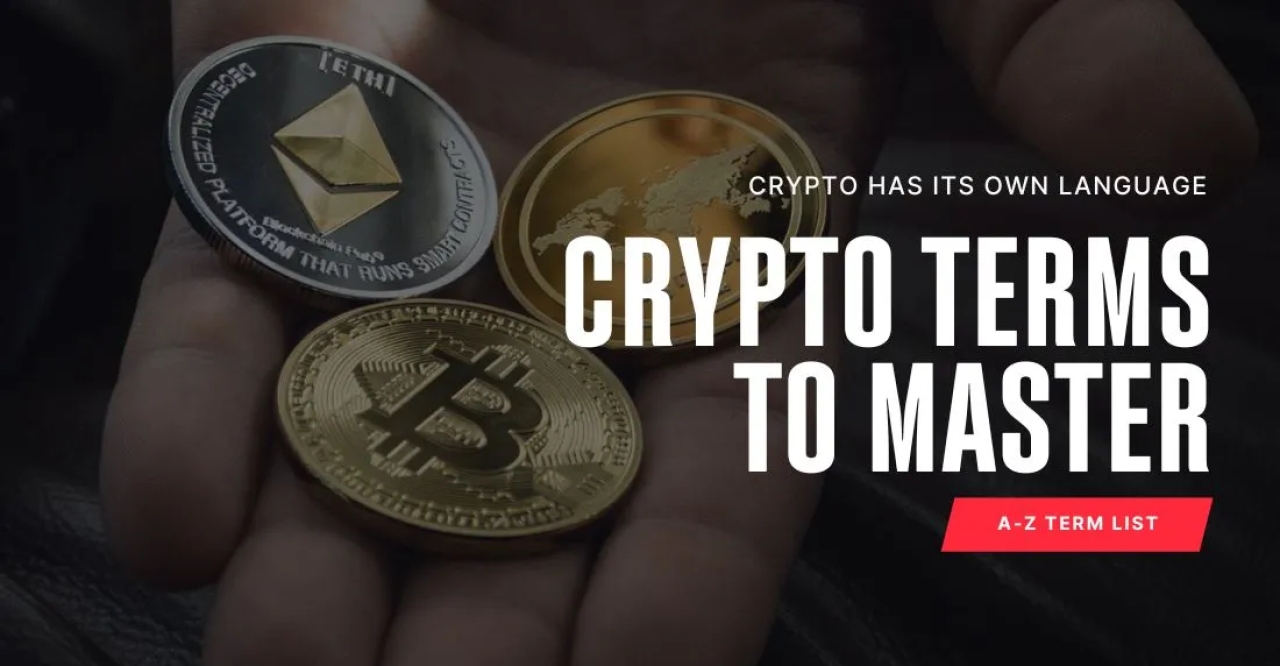
Cryptic Crypto: Top Terms To Master Crypto Trading
Crypto has its own language. Here are the top cryptic crypto terms you need to learn to understand crypto news and excel at trading this asset.
Once you learn the lingo, jump to BullRush to start fantasy-trading crypto and other assets.
A to Z Answers To Your Cryptic Crypto Burning Questions
A
Address: A string of characters representing a destination for cryptocurrency payments.
Airdrop: Distribution of free tokens to a community.
Altcoin: Any cryptocurrency other than Bitcoin.
Arbitrage: Buying and selling the same asset in different markets to profit from price differences.
ASIC (Application-Specific Integrated Circuit): Specialized hardware for mining cryptocurrencies.
B
Bear Market: A period of declining prices in the cryptocurrency market.
Bitcoin: The first and most well-known cryptocurrency.
Block: A group of transactions recorded on the blockchain.
Blockchain: A decentralized ledger of all transactions across a network.
Bull Market: A period of rising prices in the cryptocurrency market.
C
Cold Wallet: An offline wallet used for storing cryptocurrencies securely.
Consensus Mechanism: A process used to achieve agreement on a single data value among distributed processes or systems.
Cryptocurrency: Digital or virtual currency that uses cryptography for security.
Cryptography: The practice of secure communication in the presence of third parties.
D
dApp (Decentralized Application): Applications that run on a decentralized network, typically on blockchain technology.
Decentralization: The distribution of power and control away from a central authority.
DeFi (Decentralized Finance): Financial services using cryptocurrencies without traditional financial intermediaries.
DAO (Decentralized Autonomous Organization): An organization represented by rules encoded as a computer program, transparent and controlled by organization members.
E
Ethereum: A decentralized platform that runs smart contracts.
Exchange: A platform for buying, selling, and trading cryptocurrencies.
F
Fiat: Government-issued currency not backed by a physical commodity.
Fork: A split in a blockchain network resulting in two separate chains.
G
Gas: A fee required to execute a transaction or contract on Ethereum.
Genesis Block: The first block in a blockchain.
H
Halving: An event where the reward for mining new blocks is reduced by half.
Hard Fork: A significant change to a blockchain protocol that is not backward-compatible.
Hash: A function that converts an input into a fixed-length string of characters.
HODL: A term derived from “hold,” meaning to keep rather than sell cryptocurrency.
I
ICO (Initial Coin Offering): A fundraising method for new cryptocurrency projects.
Immutable: Cannot be altered or changed.
J
JOMO (Joy of Missing Out): The opposite of FOMO (Fear of Missing Out), satisfaction in knowing one has avoided losses by not participating in risky investments.
K
KYC (Know Your Customer): A process for verifying the identity of customers, typically used by exchanges.
L
Ledger: A record of financial transactions.
Liquidity: The ease with which an asset can be converted into cash without affecting its market price.
M
Market Cap: The total value of a cryptocurrency, calculated as price per unit multiplied by the total number of units.
Mining: The process of verifying and adding transactions to a blockchain.
N
Node: A computer that participates in a blockchain network.
NFT (Non-Fungible Token): A unique digital asset verified using blockchain technology.
O
Oracles: Services that provide real-world data to smart contracts.
P
Peer-to-Peer (P2P): Direct transactions between users without intermediaries.
Private Key: A secret key used to access and manage cryptocurrency funds.
Public Key: A key that can be shared publicly and used to receive funds.
Q
Quorum: The minimum number of participants required to validate a transaction or make a decision in a blockchain network.
R
ROI (Return on Investment): A measure of the profitability of an investment.
Rug Pull: A scam where developers withdraw all funds from a project and disappear.
S
Satoshi: The smallest unit of Bitcoin (0.00000001 BTC).
Scalability: The ability of a blockchain to handle an increasing number of transactions.
Smart Contract: Self-executing contracts with the terms directly written into code.
Stablecoin: A cryptocurrency with a value pegged to a stable asset like the US dollar.
T
Token: A digital asset issued on a blockchain.
Transaction Fee: A fee paid to process transactions on a blockchain network.
U
Utility Token: A token that provides access to a product or service.
V
Volatility: The degree of variation in the price of a cryptocurrency.
W
Wallet: Software or hardware used to store, send, and receive cryptocurrencies.
Whale: An individual or entity that holds a large amount of cryptocurrency.
X
XRP: The cryptocurrency used by Ripple for cross-border payments.
Y
Yield Farming: Earning interest on cryptocurrency holdings by lending them out.
Z
Zero-Knowledge Proof: A method by which one party can prove to another that they know a value without conveying any information apart from the fact that they know the value.
Why you Need To Learn Cryptic Crypto Terms?
Learning a new ‘language’ is fun and a great conversation starter but becoming proficient in crypto terms will allow you to join the ‘money talks’.
Crypto are fantastic trading assets but to understand the market, you will need to bypass the vocabulary and jump into the ideas. Start with lists like the one above and move into more complex articles after.
Next time you come across a ‘stablecoin’ article, open it with confidence and if you need more trading terms we’ve got you covered.




Leave a Reply
You must be logged in to post a comment.